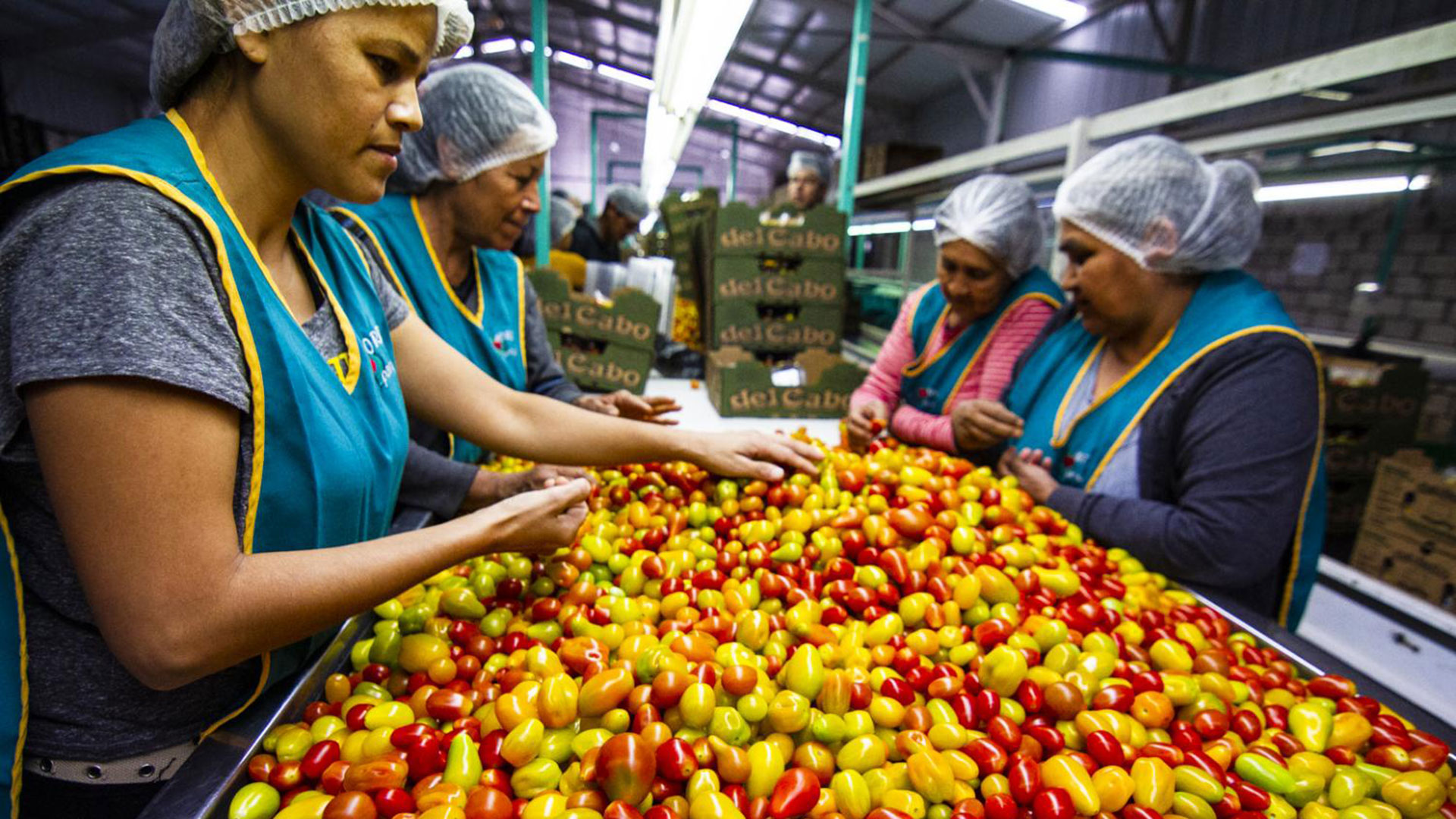 Workers sort through tomatoes at a packing plant in southern Sonora, Mexico.
Workers sort through tomatoes at a packing plant in southern Sonora, Mexico.
The mid-April Sonoran heat drops immediately as I’m led into a tomato shade house at the southern end of the state. Inside, vibrant cherry, pear and other small, sweet tomatoes dangle from rows of interwoven vines. The mesh roof ripples in the wind.
Casimiro Luna Serna, director of the organic operation, finds a ripe one for me that the morning pickers had missed. It’s fruit-sweet and delicious.
I ask what it’s like knowing that all of the farm’s tomatoes are being enjoyed in the United States.
“I have a nice story, one that isn’t to do with tomatoes,” he said. “Etchohuaquila got on the map for baseball. Fernando Valenzuela, the lefty, is from here.”
That’s famed left-handed Dodgers pitcher Valenzuela. But now, according to Luna, the town is also known for tomatoes, thanks in part to his farm.
“This is a successful little town,” he said. “Whose people like to work.”
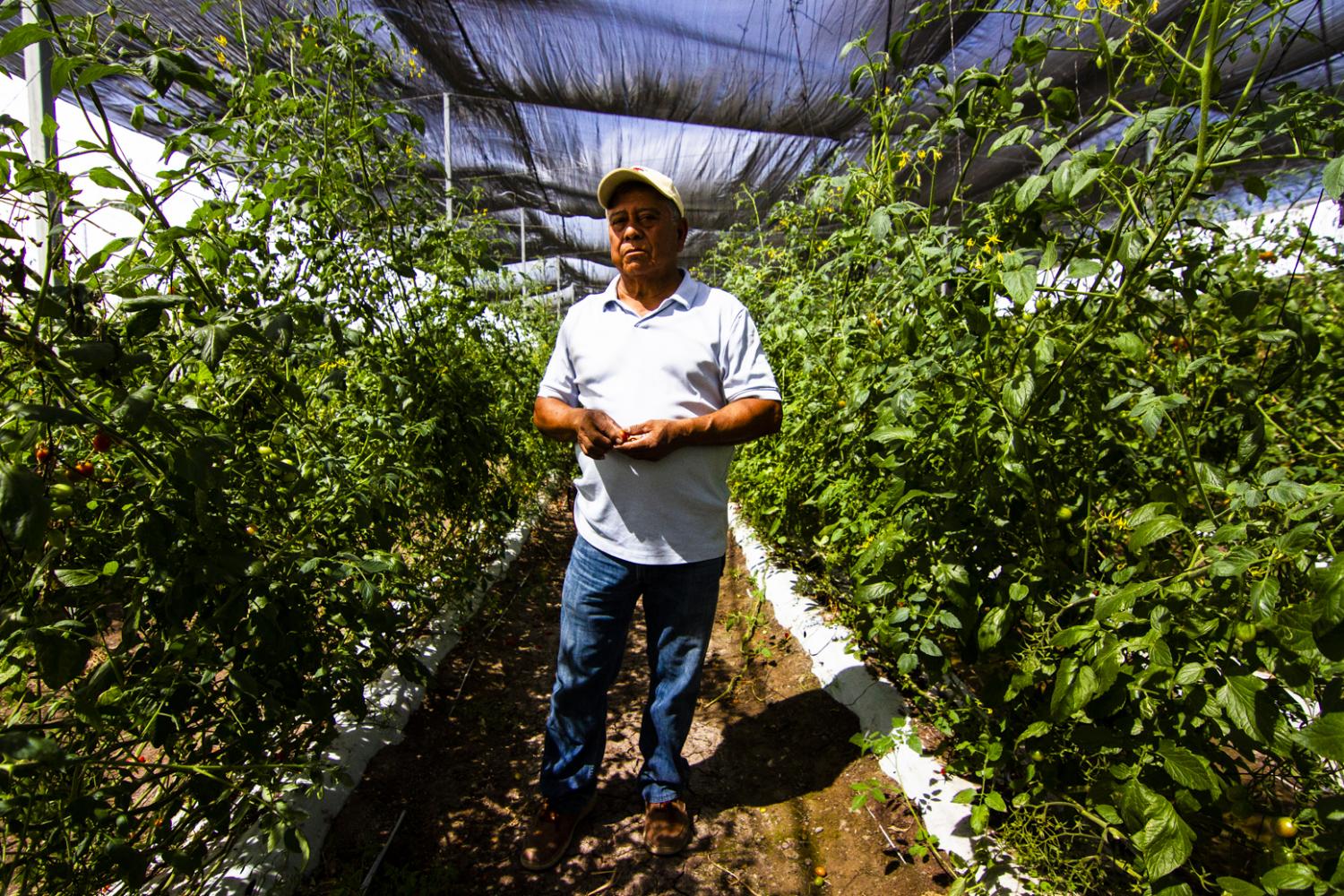 VIEW LARGER Casimiro Luna Serna runs an organic tomato operation in southern Sonora, Mexico.
VIEW LARGER Casimiro Luna Serna runs an organic tomato operation in southern Sonora, Mexico. Dumping Allegations
While those tomatoes are a source of pride for Luna, some U.S. growers see them and the several billion other pounds imported annually as an existential threat.
Imports of fresh Mexican tomatoes are currently governed by the 2013 Suspension Agreement on Fresh Tomatoes from Mexico.
That mouthful of a deal, whose first iteration in 1996 suspended a U.S. Department of Commerce anti-dumping investigation, sets a minimum sale price for Mexican tomatoes. Tomato growers in Florida first asked for an anti-dumping investigation in 1978, meaning the conflict is now over four decades old.
Some growers in Florida and elsewhere say that Mexican producers are still dumping tomatoes, and taking advantage of what they call loopholes in the agreement. Mexican growers strongly contest those claims, and say the evidence for them is misleading.
“We want to make sure that we close those loopholes, and that we stop this dramatic decline of the U.S. tomato industry,” said Michael Schadler, vice president of the Florida Tomato Exchange, which represents the industry in the major tomato growing state.
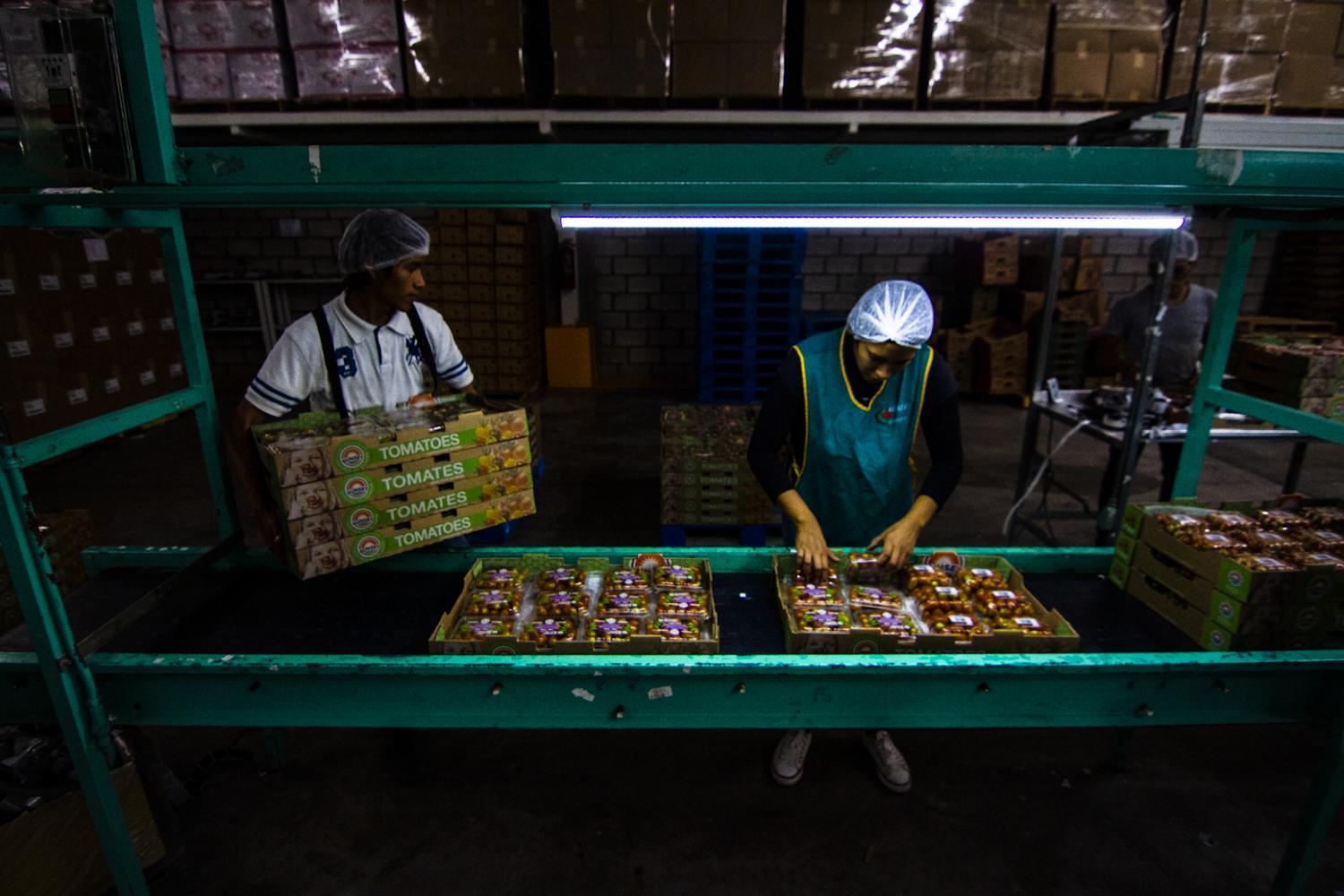 VIEW LARGER Workers get organic tomatoes ready for export to the U.S.
VIEW LARGER Workers get organic tomatoes ready for export to the U.S. Saying it was being used by “Mexican exporters to destroy the domestic tomato industry,” the FTE asked the Commerce Department to terminate the suspension agreement and restart the dumping investigation last fall. The department said it would in February, starting a 90-day countdown to its termination, a decision encouraged by Florida Sen. Marco Rubio and several dozen other national legislators.
U.S. Department of Agriculture figures show steady declines in domestic fresh tomato production since the early 2000s, even as U.S. consumer demand for tomatoes has significantly increased. Imports now make up more than half of the U.S. fresh tomato supply, up from 30 percent in 2000, according to a recent report from the agency.
To get a sense of how this looks to U.S. tomato farmers, I reached out to Fred Leitz Jr. I got him on the phone in southwest Michigan, where he and three brothers run a fourth-generation vegetable farm mostly planted with tomatoes.
“Ten years ago I wasn't even worried about the Mexican produce yet during our season,” he said. “Because they weren’t growing as much during the summertime season.”
But he says that that has since changed, meaning he’s now up against Mexican growers, who pay workers substantially less than the roughly $16 an hour wage at Leitz’s farm.
“It’s hard for me to compete with the Mexican growers and the Mexican product coming in,” he added.
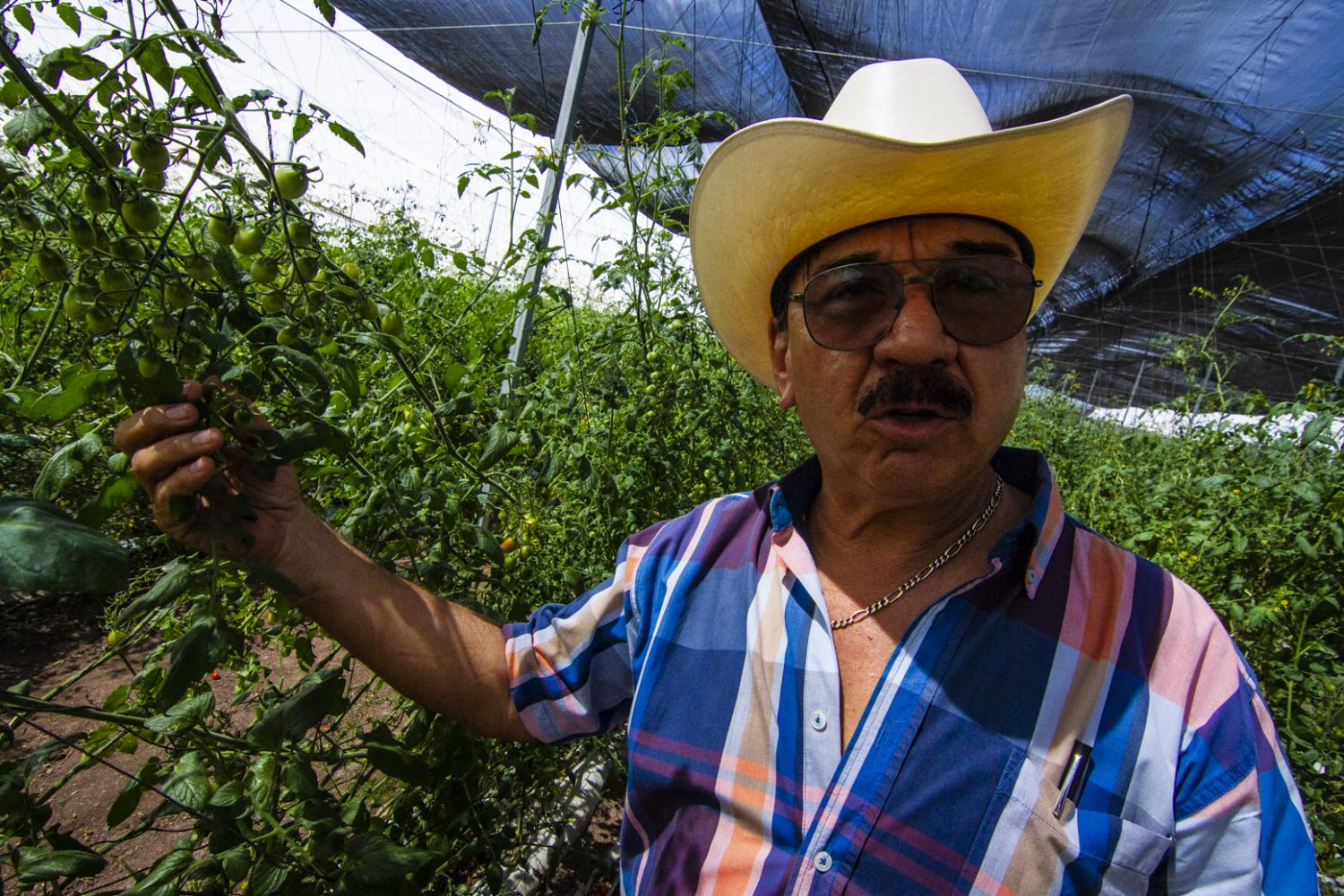 VIEW LARGER Manuel Cazares is president of Sistema Producto Tomate de Sonora, which represents tomato growers in the Mexican state.
VIEW LARGER Manuel Cazares is president of Sistema Producto Tomate de Sonora, which represents tomato growers in the Mexican state. Manuel Cazares, president of a group representing Sonora tomato growers, conceded that farmworkers are paid much less in the country — he cited a typical daily wage of roughly $10.50 to $13.20 — but said Mexican growers face other significant costs. That includes the cost of getting to the U.S. market, as well as inputs — like seeds — that are often bought from U.S. firms.
Deal, Or No Deal?
If a new suspension agreement isn’t reached, a more than 17 percent duty will be imposed on tomato imports after May 7 for at least the near future. Mexican growers could recoup the duties paid if it is ultimately determined that no dumping has occurred. Whether that’s likely depends on whom you ask.
The 17 percent duty could spell price hikes, as well as trouble for Mexican growers and Nogales, Arizona’s massive produce import industry. More than half a billion dollars worth of tomatoes crossed through the city’s port just last year, according to federal trade data.
“Right now, we are getting down to the wire,” said Lance Jungmeyer, president of the Nogales-based Fresh Produce Association of the Americas. “We’re of course wanting to see the agreement continue.”
Members of Arizona’s congressional delegation sent a letter to the Commerce Department in March urging negotiations for a new deal to continue, saying that termination “would create economic uncertainty throughout the supply chain and risk retaliation to our agriculture industry.”
Jungmeyer and others in the industry reject the FTE story of scheming Mexican growers continuing to dump to the detriment of domestic producers.
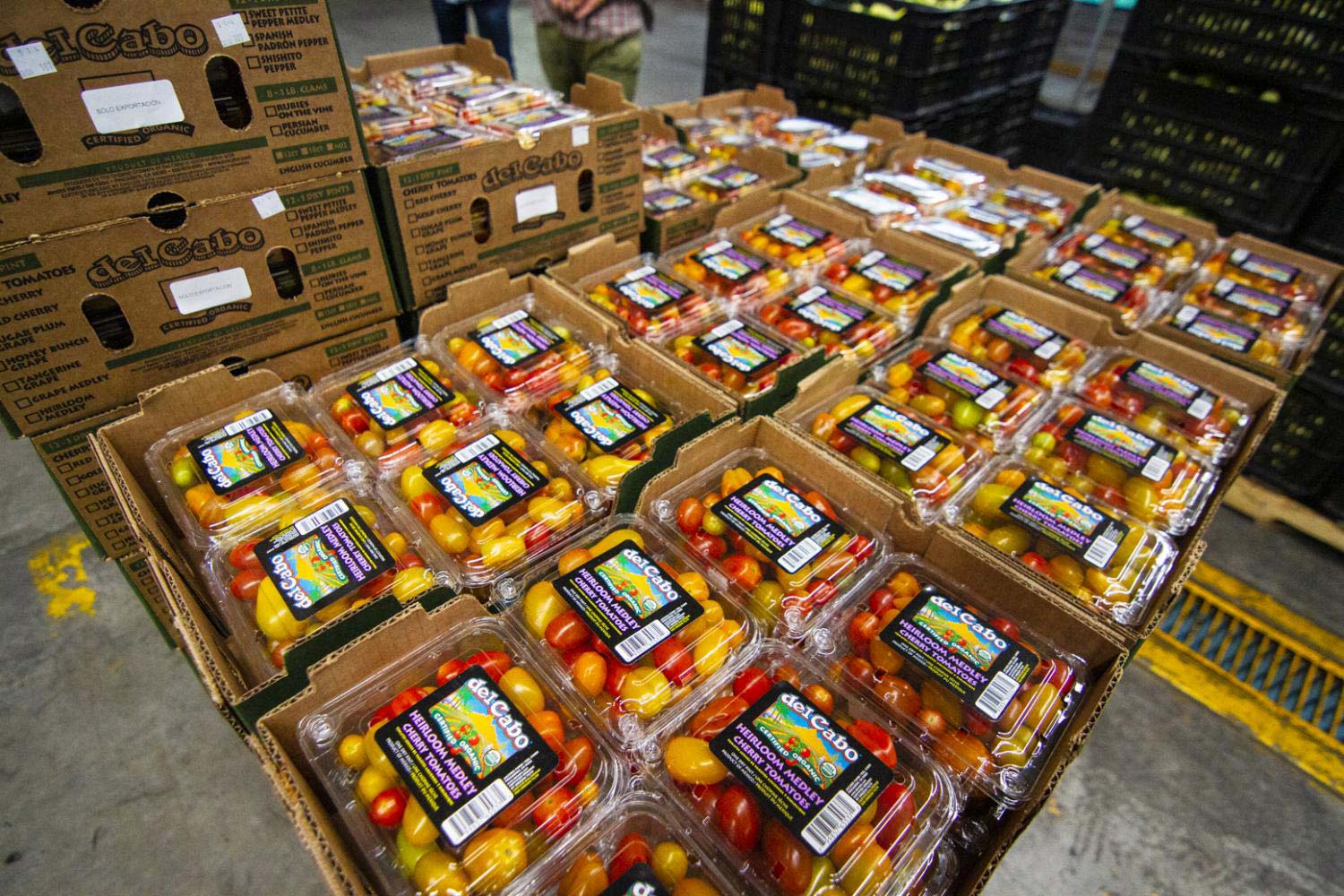 VIEW LARGER Organic tomatoes to be exported to the U.S. from Sonora, Mexico.
VIEW LARGER Organic tomatoes to be exported to the U.S. from Sonora, Mexico. As evidence, they say that the Commerce Department has no record of imported tomatoes being sold below the floor price, a point conceded by Schadler. However, Schadler says that record is flawed, and that other data suggest possible violations.
Nevertheless, Mexican growers recently proposed a substantially higher import floor price and additional enforcement tools for a possible new agreement.
“From our perspective, it’s not acceptable for a new agreement, but we think it’s a start for negotiations,” Schadler said of the proposal.
“They’re getting so much of what they’re asking for,” Jungmeyer said. “There’s probably not another time they’re going to get so many protections.”
Back at the shade house in Etchohuaquila, all the uncertainty around the negotiations has Luna worried.
“Five-hundred families depend on the farm,” he said.
And if the business is compromised by duties or elements of any final deal, some may consider extreme measures.
“The majority of the families here, they have family (in the United States),” he added. “And if this all ends, what’s going to happen? We’re going over there to work.”


By submitting your comments, you hereby give AZPM the right to post your comments and potentially use them in any other form of media operated by this institution.